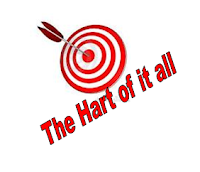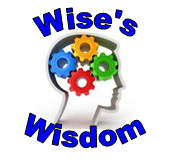About Me

- The Connected Leader
- As the 9th largest school district in the state of Ohio, the Hilliard City School District serves more than 15,500 students in grades K-12, through three high schools, three middle schools, two sixth-grade schools and 14 elementary schools.
Sunday, October 28, 2012
October 29, 2012
Highly Effective Principals Raise Student Achievement
It's nothing new for us. We have been studying the work of John Hattie for years and the impact that quality leadership can have on student achievement. We know that principals who understand, embrace, and implement the seven characteristics of highly effective leaders are more likely to positively impact student achievement than those who don't. A recent study published in the Education Next journal illustrates the impact that quality principals do, indeed, have on student performance.
"Our results indicate that highly effective principals raise the achievement of a typical student in their schools by between two and seven months of learning in a single school year; ineffective principals lower achievement by the same amount. These impacts are somewhat smaller than those associated with having a highly effective teacher. But teachers have a direct impact on only those students in their classroom; differences in principal quality affect all students in a given school."
Have you reviewed those seven characteristics of highly effective leaders lately?
Highly Effective Principals Raise Student Achievment
To read the study, click: Study
Getting and Giving Student Feedback
As Feedback continues to be a major area of focus for our buildings SIP visits, I thought this article provided us with some concrete examples to improve feedback between students and teachers. The author, Heather Rader, describes three strategies: Schema; 10:2 Theory; and Exit Slips that are quick and easy to implement in the classroom, yet provide the essential feedback we need to ensure students are on the right track.
"While it may sound like a Geico commercial, five minutes spent on feedback before, during and at the end of a lesson can save...a lot."
Getting and Giving Student Feedback
Knowing Your Learning Target
For the last few years, each School Improvement Team in the Hilliard City Schools selected one Characteristic of Highly Effective Teachers on which to focus. Many buildings are explicitly imbedding the “Knows and Applies Best Practice” characteristic. The first classroom look-for is “Learning targets for the lesson are clearly identified and students are aware of them.” Much professional discussion has occurred in HCSD in our early attempts to gain clarity on the meaning of a clear learning target. This week’s article, “Knowing Your Learning Target”, explains that “They convey to students the destination of the lesson—what to learn, how deeply to learn it, and exactly how to demonstrate their new learning.” The article describes the difference between an instructional objective for teachers and shared learning targets. The article could be beneficial to teachers as they intentionally and consistently communicate clear learning targets with students.
Knowing Your Learning Target
Some Handy Tools for YouTube
“Some Handy Tools for YouTube” is simply a brief, practical blog post about tools for both creation and consumption of YouTube videos. If you’d like to get more out of YouTube for your students and/or yourself, read this blog. OK, maybe Steven Anderson isn’t necessarily the best speller on the planet, but I didn’t care so much about his spelling as I learned a bit more about getting rid of the distractions and comments that come along with some of the videos, easy editing, adding soundtracks, trimming videos to only the parts I really need, creating my own private screening room, creating playlists, and more. As an added bonus, the blogger invites comments from others so that they, too, can share some of their favorite YouTube tools. It’s certainly worth the quick read.
Some Handy Tools for YouTube
Future of Learning: Obsolescence of Knowledge, Return to Real Teaching
I'm willing to bet one of the toughest struggles teachers will face is this inevitable shift from keeper of the knowledge to being on the outside looking in at google, the black hole of facts. If a teacher would feel the sense that their curriculum and their self worth can be outshined by google, thus preventing the evil search engine from penetrating the classroom, I would say it's time to reexamine your teaching style. If a teacher is an outdated human version of a search engine, we are failing our students. We shouldn't see a teacher with a list of vocab words on a transparency having the students recite them after searching 30 minutes for the definition in the back of the book. That's google. We should see a teacher actively engaging the students in the deeper meaning of those words and the context, concepts, and any other "c" word you want to throw in. Going from "teacher" to "coach" is the wave I want to be a part of. Walking with the students through the journey of learning and development. In this article it speaks to this point. Have a great week!
Future of Learning: Obsolescence of Knowledge, Return to Real Teaching
Sunday, October 14, 2012
October 15, 2012
College May Never Be The Same
Have you heard of MOOCs? Massive Open Online Courses are gaining in popularity, and more and more colleges are signing up. In fact, in a recent Columbus Dispatch article, President Gee announced that The Ohio State University would soon be participating in the MOOC movement as well.
"In a new report, Moody's Investor Service calls MOOCs a "pivotal development" that has the potential to revolutionize higher education. Questions remain whether these online courses can be profitable and whether traditional colleges will award credit for them. But if successful, MOOCs could lead to lower costs for families and access to higher-quality instruction for anyone in the world who has Internet access."
Is there a message for us here? Absolutely! As you've heard me say many times, our value is not in knowledge; rather, our value is in the experience we create for students. The college world is starting to grapple with this reality now. We've just been dealing with it for awhile longer. So, the key question is this . . . if knowledge is free, why do students need schools (elementary, secondary, or post-secondary)? I'm thinking of many reasons . . . . are you? This is an answer we should always be ready to answer!
A Life Worth Living
My selection this week centers around the age old question "What if money was no object?" As we continue to provide our students with more choice; more opportunity: and more experiences, we must help them discover their passions and set them on the right path to follow them. Sometimes, this may be harder for us parents; teachers; and administrators then on for our kids.
“It is absolutely stupid to spend your time doing things you don’t like, in order to go on doing things you don’t like and to teach your children to follow in the same track…What we are doing, is bringing up children and educating them to live the same sort of lives we’re living, in order they may justify themselves and find satisfaction in life, by bringing up their children, to bring up their children to do the same thing so it’s all wretch and no vomit; it never gets there…so therefore it’s so important to consider this question; what do I desire?” Alan Watts
Be sure to check out the short video clip!
Formative and Summative Assessments in the Classroom
"Formative and Summative Assessments in the Classroom" might be one of the best articles that I have read in a while! Educators use the two assessment terms often but frequently lack clarity when defining or describing them. The article clearly delineates the differences between formative and summative assessments. In addition, several examples of each type are provided to the reader. I believe this article could be a powerful springboard for our instructional data teams as they work to build common assessments during their regularly scheduled team meetings.
Twenty Tidbits for New Teachers
Having just met with our Year I Resident Educators and their mentors, I couldn’t help but to notice
the issues they’re finding to be the most challenging –
“There are only twenty-four hours in a day. How do I accomplish it all?”
“They aren’t behaving the way I expect them to behave.”
“How do I get my students to care?”
“How do I get them to turn in their work?”
It never fails. The same questions arise at this time every school year. Dare I say that these same issues arise for first-year, tenth-year, and twentieth-year teachers? “Twenty Tidbits for New Teachers” offers a variety of resources that may prove to be a wonderful support to our new teachers without adding to their already full plates. While it offers advice on building professional relationships, collaborating with colleagues, growing as professionals, and becoming a part of larger educational communities, it doesn’t forget the personal side – reflecting, relaxing, and making time for other passions. Please consider sharing this information with your newbies. Oh, and don’t forget the tenth-year teachers, twentieth-year teachers, and the rest of your teaching staff when sharing these tips.
Why Kids Need School to Change
The simple reason I wanted to share this article this time around is because of the title. Yes, I judged an article by its cover. The word "NEED" just grabbed me. Change is no longer a hobby we are going to dabble in. It's not something we should keep throwing around in a focus group, waiting for data to make choices. Our kids NEED change, let's provide it for them.
Subscribe to:
Posts (Atom)





